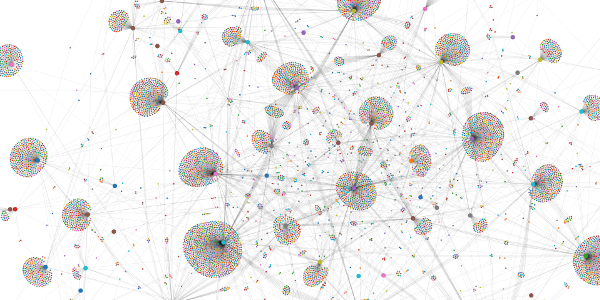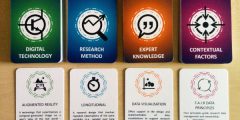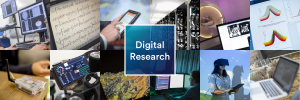Raphael Velt
View this author's profilePosts by Raphael Velt
DRHack: The results of our Digital Research Hackathon
May 8, 2018
On the afternoon of Friday 27 April, at the same time as the Digital Research Week’s closing ceremony, DRHack kicked off. We co-hosted this event with HackSoc, a student society dedicated to hacking. We invited students to come and try their hand at designing and creating new ways of engaging with research data. Hackathon participants …
Join our workshops to influence the University’s Digital Research Strategy
April 17, 2018
We are pleased to invite all University of Nottingham staff and students to participate in one of our five Digital Research Strategy Workshops. The goal of these workshops will be to explore how digital technologies enable tackling new research challenges, providing new scientific insights, and offering approaches to the understanding of people and their behaviours. …
Digital Research Week: Hands-on Demonstrations Wednesday 25 April
April 13, 2018
On Wednesday 25 April, the atrium in the Engineering and Sciences Learning Centre on University Park will host the Digital Research Week’s Demo Day. We have invited researchers from all faculties to showcase innovative technology that they have been working on, and are proud to introduce the following demonstrations: Will Bowden from the Department of …
Digital Research Week: Bring your Research Data to life at DRHack, our Digital Research Hackathon in partnership
April 11, 2018
Bring your research data to life with DRHack, our Digital Research Hackathon On Friday 27 April and Saturday 28 April 2018, as part of the University Of Nottingham’s Digital Research Week, the Digital Research Team are pairing up with HackSoc to organize a 24-hour hackathon. We are calling all researchers at the University of Nottingham …
Creating 3D environments 2/2: 3D Scanning and Photogrammetry
April 10, 2018
After discussing 360 video capture and 3D modelling in a previous blog post, we now introduce two other techniques for capturing 3D environments, 3D scanning and photogrammetry. 3D Scanning 3D Scanning is an approach commonly used in architectural and geospatial surveying. It involves the use of professional equipment which measures the distance of objects using …
Creating 3D environments for virtual experiences 1/2: 360° Video and 3D Modelling
As part of our goal to create a 3D bar for beer tasting experiments – described in our guest blog post by Marit Nijman, researcher in the Sensory Science Centre – we are currently experimenting with a variety of technologies that can be used to capture and recreate realistic 3D environments. In this blog post, …
Digital Research Week: Meet our Keynote Speakers
April 6, 2018
We are proud to introduce our three Keynote Speakers who will be providing their insight into the challenges and opportunities of Digital Research. All three speakers have extensive knowledge of both academic and industrial research and will be contributing their strategic vision to help researchers at the University of Nottingham envision the future of research. …
Introducing the Digital Research Week
March 23, 2018
Save the date: a month from now, Professor Dame Jessica Corner, Pro-Vice Chancellor for Research and Knowledge Exchange, and the Digital Research Team, are organising a Digital Research Week to empower our researchers within the digital environment. We’re offering a collection of modular events over all UK campuses to showcase the present and envision the …
Creating a virtual bar for a beer tasting experiment
February 9, 2018
This is a guest blog by Marit Nijman, PhD student in the Sensory Sciences Centre of the School of Biosciences. Do you think you would feel differently about a beer if you have it in a pub as opposed to a plain white room? My PhD research has shown that consumers’ responses to products can …
What are Agile processes and how do they relate to research?
January 30, 2018
In a previous post, we’ve discussed how we’re using Agile methods to deliver Research Data Management (RDM) services. We now explain what these methods are, and how they relate to the way researchers work. Agile methods have their roots in the world of software development. Traditionally, software would be developed the same way as other …



